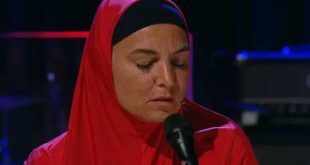One of the biggest problems facing religion today is modern relevance. For many people of faith, this means coming to terms with reforming their religion to fit modern times by dismissing or “re-interpreting” scripture. The beauty of Islam among religions is in its universality, its compatibility with science, and its versatile legal tradition which remains relevant across times and cultures.
Modernity between Acceptance of Reality and Rejectionism
For the Muslim, the correct attitude is not to resist or reject modernity, rather embrace it with our divine law. Unfortunately, some “conservative” Muslims fear modernity for one reason or another, thus detracting from their relevance. This way of thinking alienates many educated, reasonable Muslims, because they have to live in reality and Islam seems to be at odds with it.
We have ample means of accommodating modernity embedded in the Qur’an, the Sunnah and our vast, rich, 14-century legacy of jurisprudence. So for us, it is not a matter of reform per se, rather that of revivalist research of scriptural interpretation. The Islamic orthodoxy of law is quite vast and versatile. There are two issues that have hindered the proper manifestation of this versatility: closing of the doors of ijtihad (deriving new rulings from legal principles) for centuries, and a huge decline in the general quality of education in the Muslim world in the last two centuries. These two issues have led to some scholars blindly following certain, fixed schools of thought, and in turn to the subjugation of religious values to popular culture; thus our current dilemma/dichotomy.
Female Role in Society
One of the issues of modernity is female leadership. So you have the culture and its supporting fatwas from the Muslim world that women are not to be leaders outside of motherhood. You have a general consensus that women can be scholars and preach Islam, but only to other women, lest they corrupt the men with their sex appeal! In the west, Muslims are divided three ways over the issue of female leadership.
- Since immigrants are still the major stakeholders in the Mosques, most mosques have not had a female board member, executive director (Amirah) and have never had a woman scholar or preacher speak to the community.
- Some movements have started to make women Imams, leading prayers and giving Friday sermons to mixed gatherings. This has no traction in mainstream mosques due to the lack of precedent in the history of Islamic Law.
- Some Mosques are empowering sisters as female board members and executive directors, and inviting female preachers to speak to mixed gatherings. They are reviving some historical precedents of Islamic Law to achieve relevance in dealing with modernity.
Women Scholars Preaching Islam to Mixed Gatherings
The subject I would like to tackle now, with divine providence, is having female scholars who advise and preach to both men and women. Naturally, some people will object, saying it is un-Islamic to have a woman speak to a mixed crowd, counsel or give fatwa to men. The same people would not object to a male scholar counseling a woman, outside of seclusion of course! To give them the benefit of the doubt, they have never seen or heard of this in the Muslim community. Here lies the power of culture in defining our traditions. The resolution of such issues should not be determined by what we see people doing, rather by what Islam says about the matter.
So the question is, what does Islam say about having women scholars, preachers and teachers who address both men and women?
The Holy Qur’an tells us:
“The believing men and women are patrons of each other. They command to good, rebuke evil, establish prayers, give alms, obeying God and His messenger. They will have God’s mercy. Indeed God is Mighty and Wise.” (Qur’an, 9:71)
This verse, like many others, puts men and women on equal footing regarding the practice of religion. It is especially significant regarding our question, because its linguistics equates men and women working together in preaching.
Umar sums up the drastic change to Arabia regarding women
“.كنا في الجاهلية لا نعد للنساء شيئا حتى أنزل الله فيهن ما أنزل وقسم لهن ما قسم،” و في رواية: “فلما جاء الإسلام وذكرهن الله، رأينا لهن بذلك علينا حقا”
“Back in the days of ignorance before Islam, we didn’t consider women of much significance at all. This all changed with the emergence of Islam in which God mentioned them with respect and gave them new rights then we realized their rights over us.” (Sahih al-Bukhari, 5843)
Aisha – The Founding Mother Scholar, Judge and Orator
There are many texts which unquestionably show that Aisha was a huge precedent for female scholarship. Trained for 9 years in the house of the Prophet ﷺ, Abu Musa al-Ash’ari the great scholar of the companions is reported to have said about her:
“.ما أُشكل علَينا أصحابُ محمَّدٍ صلَّى اللهُ عليْهِ وسلَّمَ حَديثٌ قطُّ ، فسأَلنا عائشةَ ، إلَّا وجَدنا عِندها منه عِلمًا”
“Sometimes we the companions of Muhammad ﷺ would get confused about Islamic teachings. We would then go and ask Aisha about itand we found she always had the knowledge we were seeking in it.” (Jami` at-Tirmidhi, 3883)
It was also authentically transmitted by al-Zubair bin al-Awam, the great companion who was of the six nominated by Umar to decide among them the Caliph after him:
ما رأيت أحدا من الناس اعلم بالقرآن ولا بفريضة ولا بحلال ولا بحرام ولا بشعر ولا بحديث العرب ولا بنسب من عائشة رضي الله عنها
“I never saw anyone more knowledgeable of the Qur’an, Islamic Law, poetry, Arab history and lineages than Aisha radi Allahu `anha (may God be pleased with her).” (Al-Hakim, 4/11)
In his masterpiece on the biographies of the greatest prominent Muslims of our past, Imam al-Dhahabi relates that the famous scholar and general of the tabi’in (the generation of Muslims who were born after the death of the Prophet ﷺbut who were contemporaries of His companions) in Iraq, Al-Ahnaf bin Qays, said:
سمعت خطبة أبي بكر الصديق وعمر بن الخطاب وعثمان بن عفان وعلي بن أبي طالب والخلفاء من بعدهم فما سمعت الكلام من في مخلوق أحسن ولا أفخم من في عائشة
“I heard the sermons of Abu Bakr, Umar, Uthman, Ali and the Caliphs after them and yet I never heard speech from the mouth of anyone better or more eloquent than from Aisha.” (Siyar al-A’lam al-Nubalaa)
This should close the case, but some might say that Aisha was an exception. Well, she was in fact unique, since she was the greatest woman scholar among the companions, and greater than the top handful of men as well. That being said, as the mother of the believers, she naturally became a standard of excellence and an example to be followed by other women.
In his famous work Al-Isabah fee Tamyeez as-Sahabah, Imam ibn Hajar al-Asqalani reports on 1543 women scholars of Islamic Law, Hadith and Arabic literature!
As for teaching, the great granddaughter of the Prophet ﷺ Nafeesah bint al-Hasan was reported to have lectured to the masses in the Prophet’s mosque as well as in Cairo. It is also well-documented that scholars like Ibn Taymiyyah, Ibn Hajar, Ibn al-Jawzi and Imam al-Thahabi were all taught by female scholars.
For those of you who are still not convinced that it is acceptable for a sister to assert herself,
Imam Al-Haythami relates a story about the woman Umar put in charge of the policing of the marketplace of Madinah. Yahya bin Abi Saleem said:
رأيْتُ سَمْرَاءَ بنتَ نُهَيْكٍ وكانَتْ قد أَدْرَكَتِ النبيَّ صلَّى اللهُ عليهِ وسلَّمَ عليْها دِرْعٌ غَلِيظٌ وخِمارٌ غَلِيظٌ ؛ بيدِهِا سَوْطٌ تُؤَدِّبُ الناسَ ، وتَأْمُرُ بالمعروفِ وتَنْهَى عَنِ المنكرِ
“I saw Samraa bint Nuhayk, who met the Prophet ﷺ, wearing a rough Hijab with chainmail and a whip in her hand. She would discipline the people commanding to good and rebuking evil.” (Majma’ al-Zawa’id 9/267)
The majority of our scholars throughout history have said that there is nothing wrong with listening to a woman’s speech unless it is flirtatious or provocative. Both men and women were prohibited from (prolonged) looking at an attractive person. To say a woman clergy member cannot speak in front of men because some men may find her attractive is the same as prohibiting women from listening to a male Imam, since women have desires as well, and were equally rebuked from looking where there is attraction.
Just because the Muslims have strayed from the scholarly tradition of old and have become used to certain ways of dealing does not mean that our traditional sources of law do not support a different way of doing things more suitable for the reality we live in today.
It is of the utmost importance that we not judge Islam by the state of Muslims today. Our religion is much bigger and better than that. There were many great generations who were not only relevant but standard setters for civilization in general wherever they were.
There are many causes and struggles going on here in the US right now. Our religion is completely capable of addressing and solving the world’s problems. We are obligated to create a generation that has the right tools to bring moral balance to issues like feminism, economy, racism, class warfare, political corruption, oppression or anything else related to morality or ethics.
Source:http://www.suhaibwebb.com
 Sri lanka Muslims Web Portal Diversity and Inclusiveness
Sri lanka Muslims Web Portal Diversity and Inclusiveness




